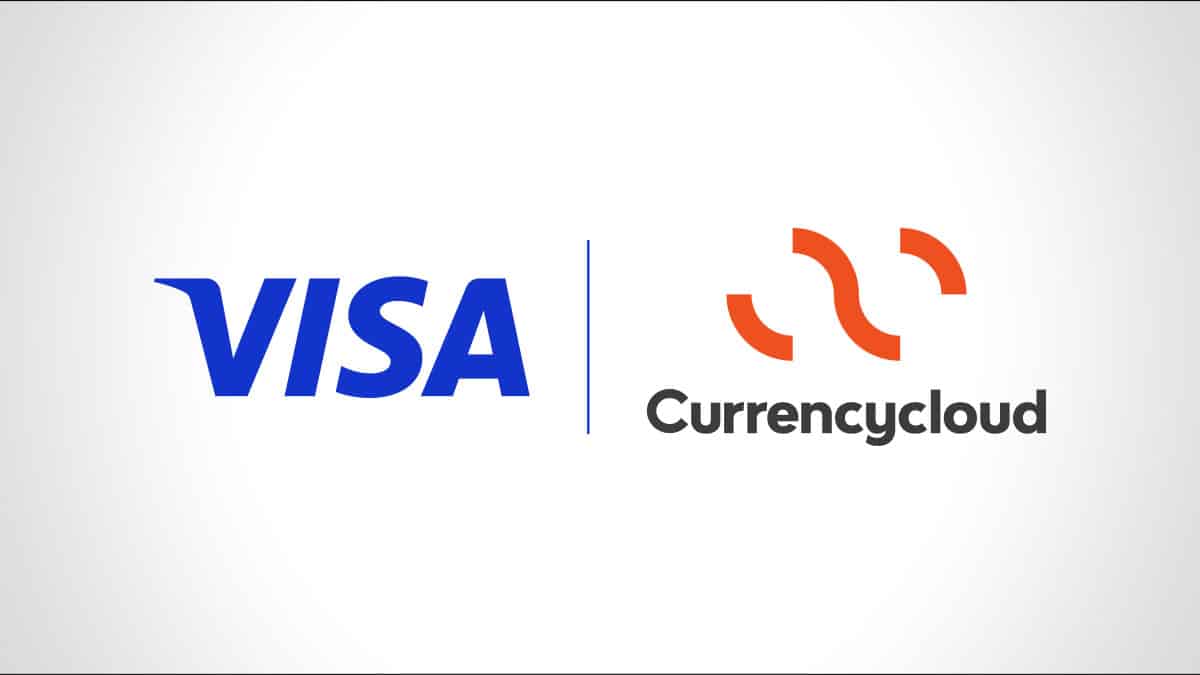Why Visa’s acquisition of Currencycloud for £700m is a major moment for embedded finance
by Matthew Knowles, 4th August 2021
“Every company will be a fintech company.” Those were the words of Angela Strange, a general partner at Andreessen Horowitz. She was talking at the a16z summit in November 2019, and her point was that, in the not-too-distant future, most businesses will derive a significant revenue from financial services.
How? Well, as more and more of the core elements of financial services become as-a-service, it becomes easier for non-FS businesses to offer these types of products. It’s the same process we’ve seen in software – as Strange notes, a couple of decades ago it would have cost hundreds of thousands of dollars to launch a software company. Now all most people need to come up with a minimum viable product is a laptop and a credit card.

Yet within that overarching concept of FS-as-a-service, what’s really driving Strange’s prediction is embedded finance: financial products, such as payments, loans, bank accounts and so on, that are integrated into a company’s services. Automatic payments at the end of ride-hailing apps, buy-now-pay-later services at checkout, and banking products within business services are all examples of embedded finance that offer a seamless experience, where the finance element is barely noticeable.
It’s a huge area of growth, and one that a number of key fintechs are leading the way in. One notable pioneer is TempoCap’s company, Currencycloud, the global payments platform. To quote a recent post from its CEO Mike Laven, “Currencycloud was founded with a vision to re-imagine the way money flows globally for businesses. Moving money across borders shouldn’t be hard, and yet many companies and small businesses still feel the pain of slow, expensive and opaque payments and foreign exchange. By removing many of these barriers, Currencycloud’s APIs have today enabled processing of over $100 billion in transactions on behalf of some of the boldest names in Fintech and finance, from challenger banks to remittance and fintech companies.”
Little wonder then that Visa has proposed to acquire Currencycloud in a deal worth £700 million.
The deal, which is subject to regulatory approvals, would see Currencycloud become part of the global payments firm, and is one of the UK’s largest fintech acquisitions of the last decade.
It’s a move that makes a lot of sense for both parties.
For Currencycloud, the transaction should accelerate its market penetration with traditional banks, while still supporting non-banking FS providers and software companies to embed financial transactions into their existing customer journeys.
For Visa, Currencycloud would strengthen Visa’s existing foreign exchange capabilities by extending them to better serve financial institutions, fintechs and partners while enabling new use cases and payment flows.
Here at TempoCap we’re delighted that the hard work of Mike, Fiona, Todd and the whole Currencycloud team is being recognised. We first invested in the company as part of a secondary transaction to realise liquidity for previous investors, one of TempoCap’s particular areas of specialism, but we had been tracking the company and its success for a very long time.
What attracted us to the business was the way it had built a platform that was triggering significant disruption in the vast business to business and business to consumer payment spaces. Enabling disruption in the B2B space was particularly interesting as it was an area that had been very much in the background, with the early generations of fintechs focusing more on B2C services.
By tackling less visible but more scalable challenges, Currencycloud has built a global presence and customer base, yet is often hidden in the background. The company helps other brands to compete, rather than tackling the end customers itself. At a time when customer experience is a key differentiator, this makes Currencycloud an important part of the infrastructure of many sector-leading businesses around the world and has allowed it to become one of the clear pack-ice breakers in what is an increasingly crowded embedded finance category.
Currencycloud has had a real impact in enabling starts ups (many of whom are now among the biggest names in European fintech) to launch faster and more cost effectively, as well as enabling banks and non-banks to introduce new products quickly. Most importantly, this means more choices, better products, and lower prices for consumers and businesses.
We’re delighted to have been involved in the business and contributed to its development. It is, in our view, the ideal portfolio business – an alchemic combination of team, product and opportunity that is disrupting markets and growing at an accelerated rate.
In the announcement release, Mike stated “At Currencycloud, we’ve always strived to deliver a better tomorrow for all, from the smallest start-up to the global multi-nationals. Re-imagining how money flows around the global economy just got more exciting as we join Visa. The combination of Currencycloud’s fintech expertise and Visa’s network will enable us to deliver greater customer value to the businesses moving money across borders.”
Currencycloud is a true pioneer – if Angela Strange’s prediction is to come true, and companies of all sectors are to embed financial products within their customer experiences, the likes of Currencycloud are going to be at the forefront of enabling that vision.




